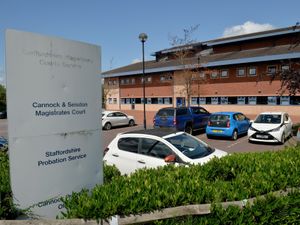PCSOs given new powers over booze
Police community support officers throughout Staffordshire are now able to seize drugs and alcohol as well as detain suspects following the granting of new powers.
Police community support officers throughout Staffordshire are now able to seize drugs and alcohol as well as detain suspects following the granting of new powers.
It will mean that Staffordshire Police's 219 PCSOs now have 20 additional powers available to them, although they still do not have the power to make arrests.
But police bosses have denied the move to give community support officers more powers is linked to the move to cut the number of serving police officers.
Staffordshire Police is trying to save £38 million over the next four years because of government cutbacks.
Assistant Chief Constable Julian Blazeby carried out a review of the force's police community support officers with the outcome giving PCSOs the additional 20 discretionary powers – doubling the number of powers available to them.
Other new powers include the ability to disperse groups and take under-16s home, as well as issuing fixed penalty notices for disorder offences.
Assistant Chief Constable Blazeby said: "I am keen to ensure that PCSOs have the right powers to do their job effectively and provide the best possible service to our communities, in furtherance of the ongoing and valuable work being delivered daily.
"This will not fundamentally change the role – the clear distinction between officers and PCSOs will remain."
The new powers will come into effect once training has been completed.
The current powers of PCSOs are limited to dealing with traffic offences, anti-social behaviour and underage drinking.
Last December, the deputy chief constable of Staffordshire Police revealed police officers would be able to handle more than 20 times as many crimes in a shift when they are manning phones rather than being on the beat.
The move came as part of a radical shake-up of policing which allows less serious offences to be dealt with over the phone rather than face-to-face.





